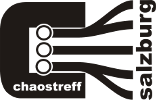Musik:
- Silencide: Hitchhikers are Late
1. Themenblock:
savetheinternet.eu – Netzneutralität durch Bürgerbeteiligung
Europäische Regulierungsbehörden werden demnächst entscheiden, ob man großen Telekomfirmen das Recht geben soll Einfluss darauf zu nehmen was wir online tun (und nicht tun) können. Europa braucht dringend klare Netzneutralitätsregeln um unsere Freiheit und Rechte online zu bewahren. Wir haben Zeit bis Juli um Europa zu helfen das freie Internet zu schützen.
Erklärung der Geschichte: EU beschloss extrem schwammige NN, BEREC darf bzw muss das interpretieren und Regeln festmachen, Niederländer schaffen aber schon vorher Gesetz und Fakten. Darstellung Situation in den USA und Indien.
* Spezialdienste
* Traffic-Management
* Zero-Rating
Demo nächste Woche zum BEREC Treffen in Wien(!) vor RTR Behörde
2. Themenblock:
Copyfails: Time to #fixcopyright!
This article is the first one in the series presenting Copyfails. The EU is reforming its copyright rules. We want to introduce to you the main failures of the current copyright system, with suggestions on how to fix them. You can find the nine key failures here. https://edri.org/copyfails/
ENDitorial: Next year, you’ll complain about the Terrorism Directive
The European Union is currently in the process of adopting a Directive on terrorism. The Directive is expected to be finalised later this year and then each Member State government will decide what it means, and will adopt national laws to put it into practice.
The European Commission wrote the draft Directive in two weeks, after the Paris attacks in November 2015, basing itself mainly on existing EU and international instruments. It was prepared without an impact assessment. An impact assessment assesses various options and the evidence available. This step is generally necessary for every piece of legislation. However, it appears it is not needed when human lives and civil liberties are at stake. Why? Because it is important to give people a feeling (even if the feeling is misguided) that the EU is doing something to “protect” them.
This is just the beginning of the political process, so the press is not interested.
Within three months, the EU Member States had adopted their informal position, or as they call it, their “general approach”. They did this in the absence of an impact assessment that would have provided the analysis to indicate what may or may not be lawful, appropriate, useful, necessary or proportionate. They added new text on blocking of websites “inciting to commit” terrorist offences, without any indication of whether the content would be legal or illegal, or why they might think that this might be a good idea. The Member States also envisage “the taking and the fixing of audio recordings in private or public vehicles and places, and of visual images of persons in public vehicles and places…”.
This is just the beginning of the political process, so the press is not interested.
The European Parliament is now preparing its position. Unlike legislation on other subjects, where relevant specialised parliamentary committees give their opinions to the Committee in charge, in this case only one Committee is assessing the Directive, because speed seems to be more important than evidence or effectiveness or even usefulness. Various Parliamentarians in the “Civil Liberties” Committee have proposed adding random additional (often incongruous or irrelevant) measures to the Directive – on blocking of websites, on banning terrorist malware (sic), on criminalising online platforms for failing to remove content on “counterfeiting trademarks” (sic), and a whole host of other measures that, similarly, are neither relevant nor based on any evidence of usefulness, effectiveness, proportionality, legality… anything.
This is just the beginning of the political process, so the press is not interested.
Now, instead of voting on the 438 amendments tabled, a small group of just eight representatives of political groups are having closed-door meetings, to create “compromise amendments” on the controversial points. Once the political groups go through this process, a vote can happen with everyone hiding in the crowd – citizens will never know who made what proposal or supported what decision. The ensuing vote in the Civil Liberties Committee will just be a mere formality because the other politicians tend to respectively follow the eight politicians that negotiated the text.
This is just the beginning of the political process, so the press is not interested.
Once the vote has happened in Committee, it does not need to be endorsed by the full Parliament. Instead, the eight Parliamentarians and Member States will start closed-door, secret meetings, together with the European Commission (known as “trilogues”) to reach a compromise between the position taken in the Committee’s so-called “orientation vote” and the Member States’ “general approach” (neither of which is binding on either institution). This process is secret, the negotiation drafts are secret and the procedure has no formal end-date.
This process is too opaque, so the press is not interested.
Only at this stage the press is given press releases, a nice spin about “fighting terrorism”, a clear end-date for the Parliament vote.
The press is interested, the process is over. It’s too late to change anything.
Next year, when your Member State starts blocking websites, without quite knowing why, when it starts imposing restrictions on Tor and proxy servers, without quite knowing why, when unaccountable, unclear legislation leads to arbitrary and discriminatory enforcement, and your government says that it is “EU law that it is obliged to implement” and you wonder why the press never reported on it, when you search in vain for who is accountable for a weak and dangerous text, come back and read this again.
In this process, EDRi uses all of its political resources to obtain documents, provide input to decision-makers, and use all possible opportunities to shine a light on closed processes and defend citizens’ rights from the dangers created by opaque and unaccountable decision-making. Thankfully, the fact that the process is rotten does not mean that the individuals involved are not open to positive and constructive input – many work hard to achieve the best possible outcome for Europe’s citizens. Even if we cannot always – or often – claim credit for the successes we have in positively influencing such processes, it is important to engage as effectively as possible, while demanding that trilogues are reformed or, ideally, abandoned.











